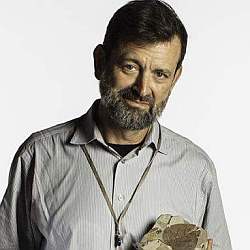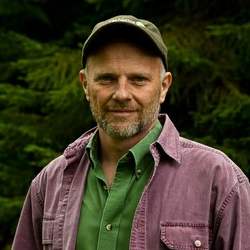VNPS Annual Workshop 2021 – Part 1 [via Zoom]
Date/Time
Tuesday, March 2, 2021
5:30 pm - 8:00 pm
Categories
Earth’s Climate: Present, Past, and Future
Tuesday, March 2 (Part 1) | Tuesday, March 9 (Part 2)
Watch the Zoom Video Recordings
Many of us are concerned about climate change and no longer need to be convinced that it is real. But we can always learn something new about the study of climate and its changes and impacts on Earth’s ecosystems. This Workshop will focus on climate changes at different periods of time, how it might relate to our current climate, and inform our thoughts about today’s changes.
Our speakers this year will cover more than 50 million years of Earth’s climate history. From the present state of our coastal ecosystems, to climate perturbations during the historic period, to the glacial ages and their influence on eastern forests, and finally to the fossil record far in the past, we will explore environmental changes in our world. Learn how both the present and the past can inform our understanding of climate and climate change.
Enjoy two evening workshops, Tuesday March 2 and Tuesday March 9 starting at 5:30pm for meet and greet. Sessions start at 6pm and 7pm both evenings.
Free registration includes both workshop sessions.
Tuesday, March 2, 2021
5:30pm
Zoom Meet & Greet
5:50pm
Welcome and Introduction
Nancy Vehrs, VNPS President
6:00pm
Global Warming 56 Million Years Ago: What It Means for Plants and Us
Dr. Scott Wing
Billions of tons of carbon dioxide are released into the atmosphere in a short time. Global temperatures soar, extreme rainfall events become common, and ecosystems transform. This might be a description of today, but it also describes a fascinating period in Earth’s history that geologists and paleontologists are studying with the aim of predicting the future as well as understanding the past.

Dr. Scott Wing
Photo: Smithsonian Institution
Scott Wing is a Curator of Fossil Plants at the National Museum of Natural History of the Smithsonian Institution. He received his B.S. in Biology in 1976 and his Ph.D. in 1981 from Yale University. His research focuses on fossil plants, how climate has changed in the past, and how ecosystems have responded to that change. He has long worked to uncover the causes and effects of the Paleocene-Eocene Thermal Maximum, a sudden global warming event 56 million years ago that has many parallels with current, human-caused. Wing was on the team that planned the new Hall of Fossils at the Smithsonian.
7:00pm
The Pleistocene and Today:
Reflections on a Million Years of Past Change and the Future of our Flora
Rodney Bartgis
For more than a million years, shifting climate has affected the plant life of Virginia. It has altered the distribution of species, rearranged plant communities, driven evolution, and caused extinction. What may this past tell us about the impacts of today’s changing climate on plant life in our anthropogenic landscapes? Understanding some of the basic lessons from the past can help us make better conservation decisions moving forward.

Rodney Bartgis
Photo: Landscape Partnership
Rodney Bartgis is past West Virginia state director of The Nature Conservancy, a former botanist with the Maryland and West Virginia Natural Heritage Programs, and currently consults on land conservation and conservation planning. He has a Masters degree in biology from West Virginia University and is a past board member of the West Virginia Native Plant Society.
Tuesday, March 9, 2021
5:30pm
Zoom Meet & Greet
5:50pm
Welcome and Introduction
Nancy Vehrs, VNPS President
6:00pm
Interaction of Climate Change and Human Land Use
In Eastern North America over the last 10,000 Years
Dr. Emily Southgate
Climate changes over the last thousand years in North America have occurred at the same time as increasingly dramatic changes in human land use, resulting in disruptions in human populations as well as in natural communities. Records of these changes can provide lessons for current and future climate changes on human, plant and animal communities. This presentation will discuss the methods used to study recent changes in vegetation as well as some details of events known as the Medieval Optimum, the Little Ice Age, and our current human-caused climate anomalies.
Emily Southgate is a historical ecologist, with graduate degrees in botany and history. She studies impacts of past human activities on our landscapes, attempting to reconstruct past landscape patterns and processes as these relate to conservation. Her book, People and the Land Through Time: Linking Ecology and History (Yale University Press. First edition, 1997; second edition, 2019) is the primary text for the field of historical ecology and has inspired both ecologists and environmental historians to incorporate each other’s fields in their research.
The latest climate models suggest Virginia will experience increases in temperatures, precipitation, storms, and sea level over the rest of the century. These changes will affect many of the natural plant communities in the state, particularly in the coastal plain. We can anticipate some of the ecological consequences of those changes and we are beginning to get a more realistic sense of the capacity of natural plant communities to help mitigate impacts on human systems.
Molly Mitchell is an Assistant Research Professor at the Virginia Institute of Marine Science and the Director of the Professional M.A. program. She is engaged in research and advisory efforts to help the state and localities manage natural resources in the Chesapeake Bay and understand the impacts of different decision-making pathways. Her recent research focuses particularly on sea level rise impacts to natural systems and the built environment and includes sea level rise projections for localities around the United States. She was awarded a 2019 US CLIVAR Early Career Leadership Award for her climate change communication efforts.

Download iCal file


